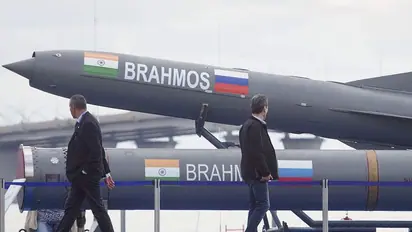BrahMos for Philippines: Why India's gains go much beyond $374.9 million
Published : Jan 14, 2022, 07:52 PM IST
Experts are of the view that India would become a reliable regional security partner if the deal gets through. It would also help the government in achieving the Rs 35,000 crore defence exports target by 2024-25.
Stay updated with the Breaking News Today and Latest News from across India and around the world. Get real-time updates, in-depth analysis, and comprehensive coverage of India News, World News, Indian Defence News, Kerala News, and Karnataka News. From politics to current affairs, follow every major story as it unfolds. Download the Asianet News Official App to stay informed anytime, anywhere.
Read more Photos on
